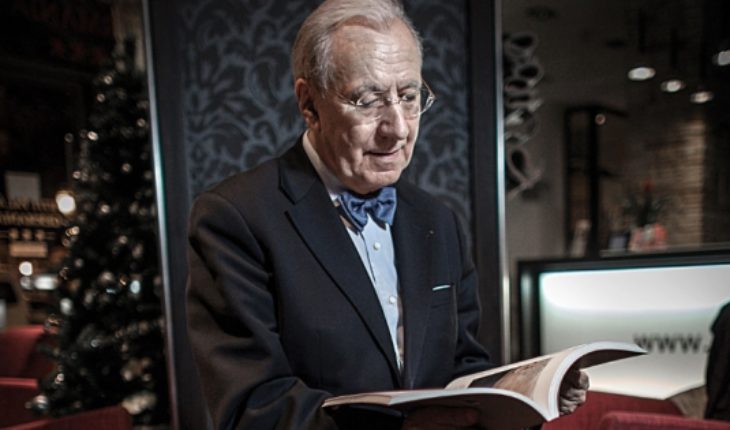Michel Maffesoli, sociologist and philosopher fr ances, considered by many a true Prophet of Postmodernity, asserts that people are buying, more and more, a new sensibility, a new way of thinking and behaving, which escapes into accustomed to look at policy radars the events within the canons imposed by modernity, from where it is born, and thus, in a linear and sequential manner. Those radars fail to capture a new mentality of people more free, more playful and sensitive, not conditioned by the great tales, which interests them more present, present, future and promises that the utopias populated subjectivity social past.
What we live, is the decomposition of a known world of modernity, where its institutions and beliefs, especially the established forms of democracy, of family, of faith in the promise of progress, so typical of the Enlightenment, are, according to Maffesoli, saturated, because its components reached their limits and mutate.
Maffesoli warns us that contemporary sociability is confused, unstable, lacking in certainty, liquid as Bauman would say. Categories that defined the modern subject, class, sex, ideologies, lack of centrality and live, what Maffesoli calls, an “ideological DIY” where people acquire meaning according to the group which includes part although it is transient and even only virtual. To them, Maffesoli called “tribes” that are companies of “weak” affinities, forms of post-modern groupings, based on affective relations – that modern reason and solid social structure ignored always-, and that today exceed the typical institutions in the modernity as a political party or a social organization class militancy.
The postmodern way of relating builds his passion more than content, the togetherness sharing feelings by a musical group or a football team, which allow recognized, be distinguished without major compromises, and build, as all social action, a common showmanship. That “we” Maffesoli called tribes, which are found in and through social networks and a postmodern city that no longer has a physical, space, time, default setting.
Maffesoli tribes are spaces of permanent boiling with people who circulate from one place to another to exercise the “plurality of masks”.
There are, and this is difficult to understand and interpret the policy, a logic of IDs rather than of identity, which is something compromising, heavy. It is a world which is mess, which creates forms of sexual indeferenciacion and ideological syncretism, a world in permanent mutation where fades the solid underlying material which was modernity, their institutions and their way of structuring the social and human subjectivity.
Maffesoli points out that one of the behavioral characteristics of persons in the post-modern world is the pursuit of happiness today, in the present, as a perennial continuation of moments and not a hypothetical tomorrow with paradise or the city of the Sun. The sign of the times, said Maffesoli, is not over the future, but the present. The future is already among us and therefore is already present. Such is the speed of technological change that is no longer possible to configure a certain future, can be better or worse, the existential risks of the most portentous advances of civilization that is configured can save or destroy the planet and the life of its inhabitants.
Falls, therefore one of the classic ways of modern joint and its ideological configuration: important projects. As Bauman says I don’t see masses eager to cross all the bridge and not be even where is the entrance of the bridge. This makes that politics and politicians are seen as something distant, alien, says Maffesoli, because prevailing daily against the project and this is abstract: it is, for example, socialism today?
Maffesoli is drastic “policy remains as the light of a dead star”. This doesn’t mean that the lack of interest in politics, especially in young people, is synonymous with psychological widespread apathy, rather it is the tipping of energy towards other mobiles, into other securities that are still in the pipeline and that it is very difficult for connect with policy.
In the new codes, it tells us Maffesoli, emotion or emotions occupy a central place and this changes the language. I have wave, tuning, which is different to have political identity with this or any other proposal or leadership.
Maffesoli, electronic keys or digital messages are the laboratories of a future sociability. They do not necessarily express individualism, nihilism, apathy, but a new way of being together, produce collective ecstasy, are “metaphors of a sociability in gestation” and transverse socially. To Maffesoli, the vacuum of verbal communication does not imply the end of communication but the end of a form of communication that excluded or was due to the political dreams, their slogans and proposals, the passion for something. You are in search of another form of communication, more horizontal, more, that which makes dump ecstasy to another.
The invitation of Maffesoli is learn to read new forms of turmoil involving what he calls the “return to the Dionysian”. This implies that the policy, as we know it and modernity, has interpreted it has mutated. Today imports domestic beyond promise as future-oriented process. He was right Anges Heller when he talked about the sociology of everyday life. Own globalization produces the phenomenon of worry of mine, what Maffesoli calls “proximity management”. The common house is the preservation of the environment, from the air we breathe, the afforestation. It is not a fashion imposed by globalization, it is a sense of preserving the habitat, the near, the planet. Which implies a social link much more affective and policy is made in these spaces away from institutions that modernity was consecrated as the anchors of the development.
What makes Maffesoli, as Foucault, already tried it is show “shadow zones” of a world ruled by a rational approach that colonized the logic of institutions and caught up in it the life of the individual. As well, argues sociologist Carter, what is at issue is the relationship between reason and dominance linked to a conception Promethean’s history where the man was owner of nature and all living beings and built his vision of development by sacrificing the that was to her around without realizing that this be sacrificed if same.
Why Maffesoli is distancing itself from this conception of the progress of the Western societies transformed into a myth that built a culture of domination which are revealed today in the world require the preservation of the environment as the center of a new policy, which becomes already compulsory, and which implies a radical change, resisted by the multinationals, with respect to this absolute domination of nature to which it was entitled because the planet was considered endless.
The big issue raised by Maffesoli of what he calls the saturation of politics, of a modernity that consecrated the political and that according to the critical judgment of Marx, who warned him, would become “in a secular form of religion” is located in the same tune as e fectivamente was covered by contractual forms that will reveal today close to the demands of a world where it is not possible to set only the reason but also irrationality, only the order but also the disorder, the objective represented by the scientific truth moved to the history of deterministic way – by own Marx – and subjective now acquiring ever greater significance in the life of human beings.
“Saturation of the political” does not mean the end of politics, as he puts it with his idea of the transpolitica, but in Maffesoli Baudrillard is tired by a policy away from new identifications of a post-modern society that does not support the linear of the thinking that for centuries has dominated politics and claimed a multiple range of identities rather than projected towards a certain future, as it promised to bring modernity, to the uncertain or unstable, which transforms the experience of the present into something essential that gives sense of postmodern life.
The passage of heavy identification identity are important more lightweight and cross of the transformed subject in “self”? because or the policy manages to leave his self-referential and interpret the new signs will be inconsequential, or manages to combine the one and the multiple, the identical and different, the perennial, and the changing and thus the postmodern subject or not will have no say in the setting ration of a future that is already strongly installed in our lives.
The content poured into this op-ed is the sole responsibility of its author, and does not reflect necessarily the editorial line nor the counter position.





